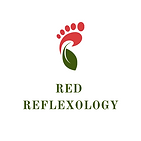The History Behind Reflexology
- Shona Rathore

- Aug 3, 2022
- 2 min read
Who invented reflexology?
It is believed that the ‘Mother of Reflexology’, as we know it today, was pioneered by a woman called Eunice Ingham, a physiotherapist. But this ancient therapy dates back much further. In fact, its origins have been traced back thousands of years to ancient Egypt, India, Native America and China.

Pictographs have been found within the tomb of an ancient physician called Ankmaher, dated as far back as 2330 BC, which depicts patients having treatments on their hands and feet.

The more modern form of reflexology was pioneered by Dr William Fitzgerald (1872-1942) who was the founder of zone therapy. He discovered that exerting pressure on the tips of the toes or fingers caused corresponding body parts to become anaesthetised. He then divided the body into ten equal zones which ran from the top of the head to the ends of the toes.

Eunice Ingham (mentioned above) used Fitzgerald’s zone therapy to develop reflexology even further. After extensive research, she found reflexes on the feet were an exact mirror image of the organs of the body. From this she developed a map of the entire body on the feet. By using acupressure and massage techniques on these reflexes, a positive effect is created in the corresponding body part.

What is reflexology good for?
The ancient Chinese believe that everyone has a vital energy called Qi that flows through us. When a person becomes stressed, it blocks the flow of this energy. This causes an imbalance within the body which leads to illness. Reflexology sends energy through the body until it reaches the area in need of healing. It aims to keep Qi flowing through our body and keeping it balanced and disease free.
The Chinese classic “The Yellow Emperor’s Classic of Internal Medicine” was written around 1000BC and has a chapter within it called ‘Examining Foot Method’. It is the beginning of discussions, in print, about the connection of life force and points/areas on the feet.
In the 1890s it was discovered that nerves connect to our internal organs. A reflexologist’s touch may help calm the central nervous system, therefore promoting relaxation and many other benefits that come with this, such as reduced stress.
People have also been reported that reflexology has helped:
-Boost immunity
-Fight cancer
-Get over illness or infection
-Clear sinuses
-Recover from back issues
-Correct hormonal imbalances
-Boost fertility
-Improve digestion
-Ease arthritis pain
-Treat nerve problems
There is still a lack of funding for clinical studies into these claims, but studies have proved that reflexology helps reduce stress, anxiety, depression and ease pain.
Reference:
.png)





Thank you for sharing this well-researched information. The expansion of online entertainment platforms is one significant trend in the digital realm. You may get more background information on the website. The article provides a succinct, objective overview of the subject.